By its nature, addiction isolates people from friends and family members who care about them. When people use drugs and alcohol excessively, they may feel that no one understands what they are going through and that no one else is experiencing the same struggle with addiction. However, group therapy for addiction is one of the most effective methods to help people struggling with drug and alcohol use.
The group therapy program at Athens Recovery helps people recognize that they are not alone and that there are many other people who are going through the same issues. If you or someone you care about is stuck in the endless cycle of addiction and are looking for a place to begin a healing journey, contact our Athens Recovery team online or call us at 844.959.4998. Our team has years of experience helping people get back on the right track, and we treat each of our clients with the respect and dignity they deserve. But what is group therapy?
What Is Group Therapy?
Group therapy is just what it sounds like. It is a group that meets regularly and is led by a trained counselor or therapist. Typically, the group members have similar experiences and are working toward the same goal.
There are many models of group therapy, including:
- Support groups – This is the most common form of group therapy. In fact, when most people think of group therapy, they are thinking of support groups. Support groups help members manage their day-to-day lives and encourage each other to keep up their progress.
- Cognitive-behavioral groups – Cognitive-behavioral groups are structured to change behavior by changing the thinking patterns of group members. This form of group therapy also helps to alter the beliefs and perceptions of the individuals.
- Psychoeducational groups – This group therapy approach is designed to expand a client’s understanding of the consequences of addiction. Also, psychoeducational groups help people to identify the people, places, and situations that trigger drug and alcohol use and learn how to avoid them.
- Skills-development groups – Skills-development groups teach members healthy coping mechanisms and other techniques so that they can avoid drug and alcohol use as a response to the stress and pressure of life. For example, anger management might be one of the skills taught in this type of group therapy.
What Are the Benefits of Group Therapy?
Many people enrolled in group therapy programs begin to experience the benefits of this therapeutic approach after their first session.
Some of the benefits of group therapy include:
- Promotes structure and discipline – When people use drugs and alcohol, the only part of their schedule that matters is using. Group therapy provides rules and consequences that people dealing with addiction sorely need.
- Reduces isolation – Group therapy sessions allow people to hear the stories of other people having similar experiences. Knowing that other people are also struggling with addiction gives people a place where they feel they belong.
- Develops inspiration and hope – Addiction can trick the mind into believing there is no chance for a happy and healthy life. Group therapy gives people hope that recovery is possible.
- Builds a support system – One of the most important benefits of group therapy is that people create a support system that becomes a valuable resource in their recovery efforts. Often, people find that the members of their group therapy sessions are a source of comfort and understanding.
Explore the Group Therapy Program at Athens Recovery
Our team at Athens Recovery understands that addiction is a disease, not a weakness or lack of morals. That’s why we provide an array of treatment and therapy programs, including our group therapy program, to get people on their road to recovery. What is group therapy? It might be the key to a life free from drug and alcohol use. Learn more about Athens Recovery by calling us at 844.959.4998 or contacting us online.

